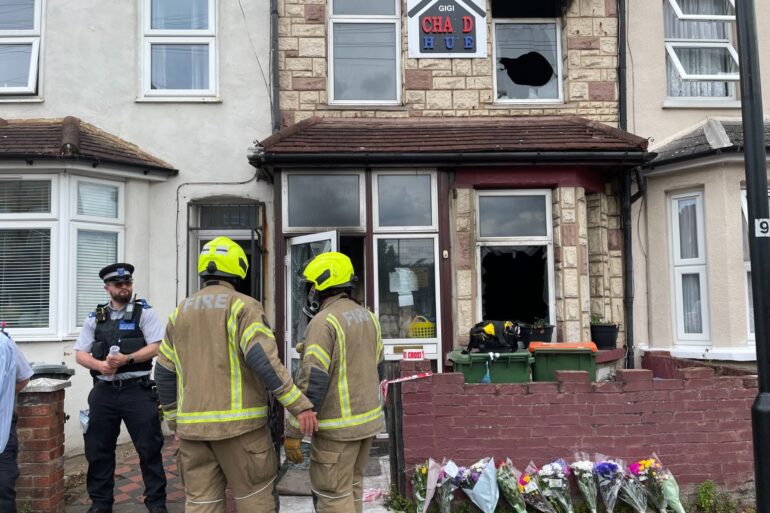-
 play_arrow
play_arrow
KL1 RADIO KL1 Radio Local Radio for West Norfolk
-
 play_arrow
play_arrow
KL DISCO KL Disco Playing Disco Music from the 70's onwards.24/7
-
 play_arrow
play_arrow
KL COUNTRY KL COUNTRY Playing New and Classic Country Music 24/7
-
 play_arrow
play_arrow
KL ROX KL ROX The best of New and Classic Rock.24/7
-
 play_arrow
play_arrow
KL SUMMER Summer Vibes 24/7 from KL1 Radio across West Norfolk
-
 play_arrow
play_arrow
KL CHILL Just Chill!
-
 play_arrow
play_arrow
KL POP The Best POP Hits all day Long!
-
 play_arrow
play_arrow
KL XTRA KL XTRA, The PopUp Station from KL1
music_note

Children were used as “objects for research” while the risks of contracting hepatitis and HIV were ignored at a specialist school where boys were treated for haemophilia, the final report of the Infected Blood Inquiry has found.
Of the pupils that attended the Lord Mayor Treloar College in the 1970s and 80s, “very few escaped being infected” and of the 122 pupils with haemophilia that attended the school between 1970 and 1987, only 30 are still alive.
Several pupils at the boarding school in Hampshire were given treatment for haemophilia at an on-site NHS centre while receiving their education.
But it was later found that many pupils with the condition had been treated with plasma blood products which were infected with hepatitis and HIV.
Haemophilia is an inherited disorder where the blood does not clot properly.
Most people with the condition have a shortage of the protein that enables human blood to clot, known as Factor VIII.
In the 1970s, a new treatment was developed – factor concentrate – to replace the missing clotting agent, which was made from donated human blood plasma.
The 2,527-page report, written by inquiry chair Sir Brian Langstaff, concluded that children at Treloar’s were treated with multiple commercial concentrates that were known to carry higher risks of infection and that staff favoured the “advancement of research” above the best interests of the children.
The report found that from 1977, medical research was carried out at Treloar’s “to an extent which appears unparalleled elsewhere” and that children were treated unnecessarily with concentrates, particularly commercial ones rather than alternative safer treatments.
Sir Brian said: “The pupils were often regarded as objects for research, rather than first and foremost as children whose treatment should be firmly focused on their individual best interests alone. This was unethical and wrong.”
His report found there is “no doubt” that the healthcare professionals at Treloar’s were aware of the risks of virus transmission through blood and blood products.
He wrote: “Not only was it a pre-requisite for research, a fundamental aspect of Treloar’s, but knowledge of the risks is displayed in what the clinicians there wrote at the time.
“Practise at Treloar’s shows that the clinical staff were well aware that their heavy use of commercial concentrate risked causing Aids,” he continued.
Despite knowledge of the dangers, clinicians proceeded with higher-risk treatments in attempts to further their research, the report concluded.
Sir Brian wrote: “It is difficult to avoid a conclusion that the advancement of research was favoured above the immediate best interest of the patient.”
He continued: “In conclusion, the likeliest reason for the Treloar’s treatments having the catastrophic results they did is that clinicians were seduced by wishing to believe, against available information, that intensive therapy might produce better overall results; by the desirability of convenience in administration rather than the safety of treatment and by ignoring some of the treatment implications of the research projects they wished to pursue.”
The Lord Mayor Treloar College, which has since been rebranded as Treloar’s, was established in 1908 as a school which gave disabled children a better chance to receive an education alongside any medical treatment they might need.
It was originally a boys’ school but then merged with a girls’ school in 1978 to become co-educational.
From 1956, boys with haemophilia began attending the school. After it was discovered pupils had been given infected blood plasma, the NHS clinic at the school closed.
The report also highlighted that parents and children at Treloar’s were given little information about their care and the related risks, and that parental consent was not sought regarding the use of different treatments.
Sir Brian wrote: “The evidence before the inquiry suggests, overwhelmingly, that there was no general system or process for telling parents of the risks of viral infection.
“Nor were pupils told.
“Parents were not given details, nor even core information, about their children at Treloar’s for haemophilia.
“They were not told, for instance, that despite their home clinician’s recommendations as to the treatment product, the pupils were being given a range of different concentrates.”
In many cases, the report states, research was conducted on patients, including children, without consent or consent of their parents and without informing them of the risks.
“They gave a consistent account that there had been no meaningful consultation with their parents, or with them,” Sir Brian continued.
Published: by Radio NewsHub

Similar posts
Upcoming shows

Weekend Back Trax
6:00 am - 8:00 am

Kelvin Scott – Weekend Breakfast
8:00 am - 11:00 am

Vicky Green – Classic Hit Lunchtime
11:00 am - 1:00 pm

Darren Furzey – Classic Hit Weekend
1:00 pm - 3:00 pm

Lee Vincent – Classic Hit Saturday
3:00 pm - 6:00 pm
-

Paris Olympics off to a sodden start with a rain-drenched opening ceremony

Three children who died in house fire are ‘missed beyond measure’, parents say

John Hunt says messages of support ‘like a hug’ following family crossbow deaths

Police officer under criminal investigation for assault after airport video

Hunstanton Fossil Hunting Trip – 18th August 2024
Message Us Now!
Copyright The Mediasite UK - 2023.



